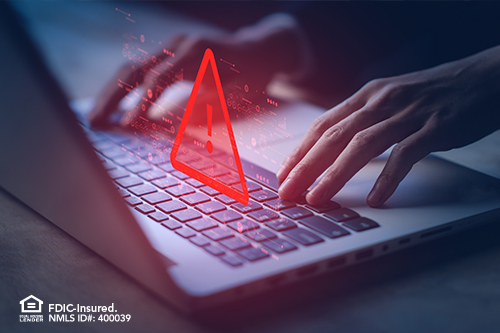Thousands of people have lost millions of dollars and their personal information to criminals posing as the IRS. These scammers use regular mail, telephone, or email to con individuals, businesses, payroll managers, and tax professionals. The IRS does not initiate contact with taxpayers by email, text messages, or social media channels to request personal or financial information. In all their forms, malicious communications are designed to trick, surprise, or scare someone into responding quickly to gain trust or steal.
Victims are tricked into providing sensitive personal financial information, money, or other information. This can be used to file false tax returns and tap into financial accounts, among other schemes. Criminals have used these methods for years, and they persist because these tricks work enough times to keep the scammers at it.
"If you are surprised or scared by a call or text, it's likely a scam, so proceed with extreme caution," said IRS Commissioner Chuck Rettig. "I urge everyone to verify a suspicious email or other communication independently of the message." Taxpayers should be wary of various schemes and how they can continually change:
- Text message scams: These are sent to taxpayers' smartphones and often contain bogus links claiming to be IRS websites or other online tools. Other than IRS Secure Access, the IRS does not use text messages to discuss personal tax issues, such as those involving bills or refunds. The IRS also will not send taxpayers messages via social media platforms.
- Suppose a taxpayer receives an unsolicited SMS/text that appears to be from either the IRS or a program closely linked to the IRS. In that case, the taxpayer should take a screenshot of the text message and include the screenshot in an email to phishing@irs.gov with the following information:
- Date, time, and time zone when they received the text message.
- A phone number that received the text message.
- Do NOT click links or open attachments in unsolicited, suspicious, or unexpected text messages from the IRS, state tax agencies, or others in the tax community.
- Email phishing scams: The IRS does not initiate contact with taxpayers by email to request personal or financial information. The IRS initiates most contacts through regular mail. If a taxpayer receives an unsolicited fraudulent email that appears to be from either the IRS or a program closely linked to the IRS, report it by sending the email as an attachment to phishing@irs.gov.
- Phone scams: The IRS does not leave prerecorded, urgent, or threatening messages. In many variations of the phone scam, victims are told that a warrant will be issued for their arrest if they do not call back. Other verbal threats include law-enforcement agency intervention, deportation, or license revocation.
- Criminals can fake or "spoof" caller ID numbers to appear anywhere in the country, including from an IRS office. This prevents taxpayers from verifying the caller's actual number. Fraudsters have also spoofed local sheriff's offices, state departments of motor vehicles, federal agencies, and others to convince taxpayers the call is legitimate.
- The IRS (and its authorized private collection agencies) will never:
- Call to demand immediate payment using a specific payment method, such as a prepaid debit card, gift card, or wire transfer. The IRS does not use these methods for tax payments.
- Threaten to immediately bring in local police or other law-enforcement groups to have the taxpayer arrested for not paying.
- Demand that taxes be paid without allowing the taxpayer to question or appeal the amount owed.
- Ask for credit or debit card numbers over the phone.
Generally, the IRS will mail a bill to taxpayers who owe taxes. All tax payments should only be made payable to the U.S. Treasury, and checks should never be payable to third parties. For anyone who doesn't owe taxes and has no reason to think they do: Do not give out any information. Hang up immediately. For more information, see IRS warning: Scammers work year-round; stay vigilant.
At NASB, we take security very seriously. We want to ensure our customers' financial safety and educate them on avoiding cybercrime. Please click here for more ways to protect yourself.




